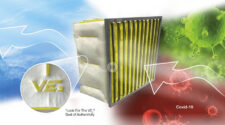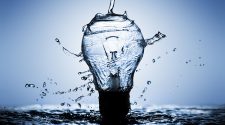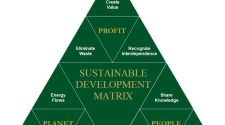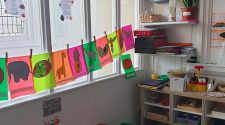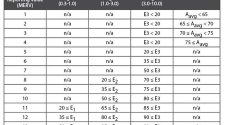Advisory Board Chairman Ed Gregor Interviews Philip Whitaker, CEO
By Edward C. Gregor, International Filtration News
AAF Flanders traces its roots back to 1921 in Louisville, Ky. when it’s founder Bill Reed recognized that cleaner air was critical to the efficient operation of the ever-growing number of air conditioning systems in the U.S. In 1929, Reed Air Filter joined with seven other firms to become American Air Filter Co. Inc., doing business as AAF International. The company has demonstrated considerable growth in the years since, and now operates locations in 22 countries in North and South America, Europe and Asia, producing some of the world’s most advanced and innovative air filtration products available today. The company is widely considered a global leader in air filters, with an especially strong position in both the U.S. and the emerging economies of Asia. AAF International is also positioned for further aggressive expansion in Europe as part of what the company refers to as their “Fusion 20 Plan.”
In 2006, AAF and its affiliated organization McQuay were acquired by the public company Daikin, a $20 billion Japanese firm, as part of a strategy to both strengthen and diversify Daikin’s business. This acquisition served to reinforce Daikin’s position as the world’s largest manufacturer of HVAC products and systems. In 2015, Phil Whitaker, originally from Manchester, England, joined AAF International as CEO. With more than 25 years of global HVACR experience, he came to AAF from Camfil, where he had served as President of Asia and the Middle East. Whitaker is based in Louisville, and he recently led the acquisition of well-known Flanders Corp., a leading HVAC and HEPA filter company. Under his leadership, the combined company has been rebranded as AAF Flanders in the United States, while maintaining the name AAF International in other territories. Combined business revenue is now more than $1.0 billion. AAF Flanders operates under the recently launched tag line “Bringing clean air to lifeTM” and is committed to cleaning the indoor air around the globe to improve quality of life, increase productivity, protect critical processes and equipment, and create products that advance the human condition.
Ed Gregor: What was your thinking behind the acquisition of Flanders?
Phil Whitaker: Flanders and AAF fit very well together. Flanders had several complementary assets and products of interest to us, including considerable strength in HVAC and metal containment housings for HEPA filters. We were further aware that Flanders had an excellent representative network in North America focused on new construction projects and a strong presence in the wholesale and retail markets. In short, the companies went well together and the combination gives us a broad reach into the retail, commercial, industrial and high purity markets.
Ed Gregor: Do you manufacture your own filtration media?
Phil Whitaker: As a general rule we do not. We like to work closely with trusted vendors, encouraging our highly qualified R&D staff to work with suppliers to develop the best filtration media for each application. One exception to this is that we do manufacture some of our own high performance HEPA media, including ePTFE, by working closely together with some of our Daikin sister companies.
Ed Gregor: Most of us are aware AAF International and now AAF Flanders supplies a wide range of filters for an enormous range of air filtration segments, from commercial buildings to industrial processes, from home furnace filters to high end clean room applications, and much more. My question, are there areas you place higher emphasis on than others?
Phil Whitaker: All our customers are critical to us, yet with that said, we do see enormous growth opportunities in Asia and in Europe with their increasing needs for air filtration In fact, we believe our entire industry will see good growth in all global territories in the years ahead. Opportunities abound worldwide, but let me reinforce, we also continue to focus on domestic markets or any of our key areas of strength; whether it be a territory, market segment or product line, as we seek to address customers’ ongoing needs. Our people are dedicated to our customers, which is how we built the company. We are constantly aware of the need to stay close to our customers, and we take that responsibility seriously. We will remain agile in responding to all of our customers’ unique needs.
Ed Gregor: What are your aspirations in automotive, trucking, and off-the-road vehicles air filters?
Phil Whitaker: We already serve the automotive industry by providing clean air for their manufacturing processes. This is both a challenging and a rewarding business. That said, we do not have any proximate plans to expand our business to cover what is commonly referred to as the cabin air segment, i.e., the filters installed in the vehicles themselves.
Ed Gregor: What about liquid filtration?
Phil Whitaker: We are air people, and liquid does not currently factor into our future. We firmly believe air filtration has enormous growth opportunities, and it’s where we can make the biggest difference. We will continue to concentrate our efforts on clean air, and we expect to remain on the forefront of air filtration innovation.
Ed Gregor: Do you sell through a distribution network or direct?
Phil Whitaker: We sell our filters through multiple appropriate channels depending on the customer requirements. This includes retail, wholesale, OEM and, very importantly, through third-party representatives and distributors. We’ve had great success recently working with representatives and distributors in key markets.
Ed Gregor: You recently acquired a major distributor covering key markets in the western United States. Are you open to making additional distributor acquisitions?
Phil Whitaker: Perhaps, under the right circumstances, if the deal made sense for both parties.
Ed Gregor: How does AAF Flanders address sustainability issues?
Phil Whitaker: I’m pleased you asked this question. This is an important priority for our business. We are enormously aware of the impact sustainability and “green thinking” has on customers and society. We are always working to enhance our products to better reduce energy consumption and the carbon footprint for ourselves, and our customers alike. We have created a range of products that are metal free and therefore incinerable, and sustainability is always a top priority in our research and development efforts. Furthermore, we continue to make improvements to our Environmental Management System, guided by the philosophy of taking action with the Future of the Earth in mind.
Ed Gregor: Thank you Mr. Whitaker for your time along with your candid and insightful comments. We look forward to your presentation, as a plenary speaker at the American Filtration & Separations Society’s 2017 Spring Conference, April 10-13, 2017 at the Galt Hotel in Louisville, Ky., where the American Filtration & Separations Society will celebrate the beginning of its 30th year and 59th Conference.


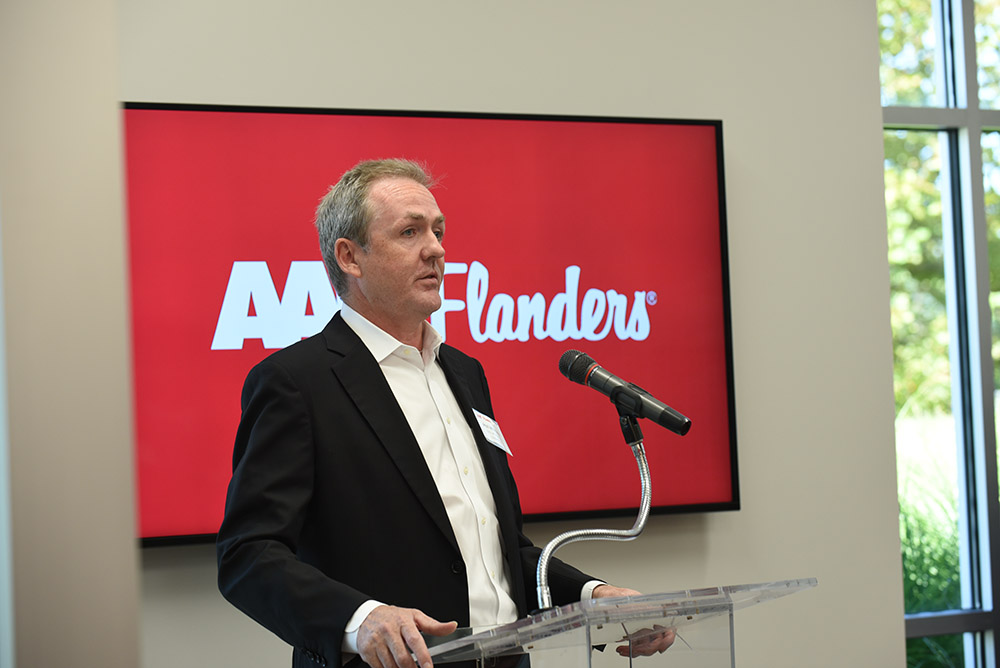
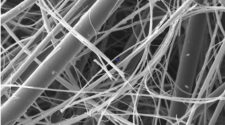
![Figure 1: Heat Exchanger Proventics GMBH.[22]](https://www.filtnews.com/wp-content/uploads/IFN_2_2024_crimpedmicrofiberyarns_Fig.-1-Heat-exchanger-225x125.jpg)

